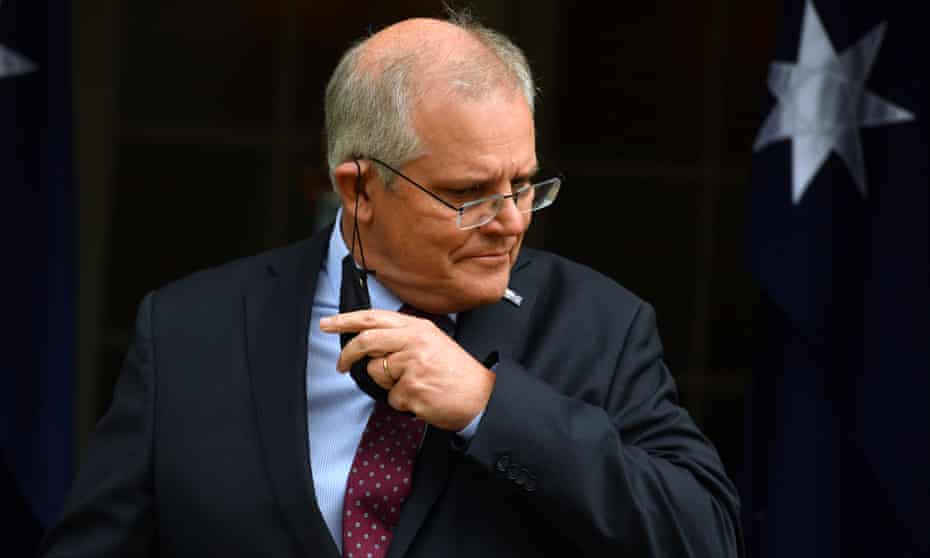Extract from The Guardian
As Omicron poses growing challenges, our governments need to put aside political games and prioritise the national interest.

This
time last year was a time of hope – we had survived 2020, vaccinations
were just around the corner and with that, the promise of no more
lockdowns and a return to open borders. We would live safely with Covid.
How wrong we were.
The mess we are in is the result of three factors.
The
first factor was an external one. As expected, the virus mutated and we
learned the Greek alphabet. Delta was worse than the original strain,
and then along came Omicron, with its impact exacerbated by the two
other factors.
The second factor was world-class bungling. The commonwealth government completely mishandled every aspect of the vaccination program. Its narrow procurement strategy was wrong. Its prioritisation strategy – with the most at-risk to be vaccinated first – was ignored from the start. Its rollout was a shemozzle, so bad that “strollout” was designated Australian word of the year. Its communication of vaccine advice and eligibility was confusing and inconsistent. The commonwealth learned nothing from this litany of errors and proceeded to bungle the testing approach as well.
The third factor was also one of our own making: the complete collapse of national leadership. The federal government went missing in action. Each state went its own way, imposing border controls at short notice and inventing its own idiosyncratic definitions about when a zone was red or green. Most unfortunately, each state decided whether or not to attempt to control the spread seriously. There were clear differences among states and over time. New South Wales followed a less interventionist approach than Victoria, and the NSW premier, Dominic Perrottet, is more laissez-faire than his predecessor.
The two problems of our own making need to be addressed, and this requires national leadership.
The
commonwealth needs to abandon its hectoring from the sidelines with its
eye on what would make a politically positive headline and what might
appeal to its base. The states need to start recognising they are part
of a single nation – and that, for example, Queensland’s border rules
impact on NSW, and uncontrolled spread in one state affects all of us.
National
cabinet needs to become a place where, just this once, ideology,
political games and cost shifting are put second and the national
interest is put first. A new era of national leadership would revisit
current policy settings about testing, vaccination, and public health
measures.
Testing has been overwhelmed. The states need to agree
to use rapid antigen tests more. The commonwealth needs to fund antigen
tests fully and distribute them for free as the UK has done for the last
eight months.
The federal government needs to speed up the rollout of third doses and kids’ doses.
And
we need to stop pretending that the only way we can “live with Covid”
is to adopt a “let it rip” strategy with potentially fatal consequences
for those most at risk. National leadership about the importance of
public health measures, including mask mandates and testing yourself
before mixing with others, is essential.
State action in 2020
meant that the first wave of Covid was essentially managed well – albeit
with a few failures, most notably hotel quarantine in Victoria.
Australia therefore has one of the lowest death rates in the world, and
the economy has rebounded well too.
A cooperative national
strategy is needed – and needed quickly – to respond to the immediate
risks we are all facing. It is time for our national leaders to do their
job, putting the national interest first.
No comments:
Post a Comment